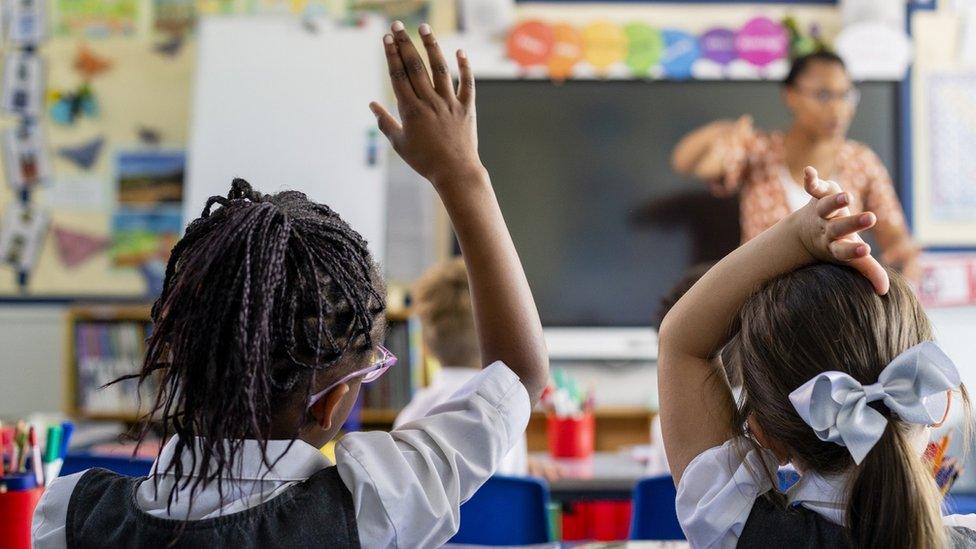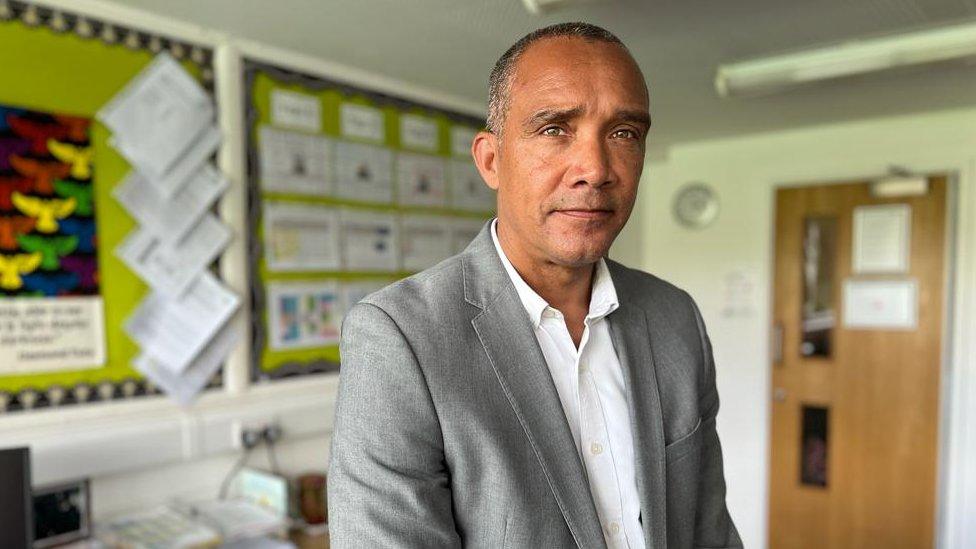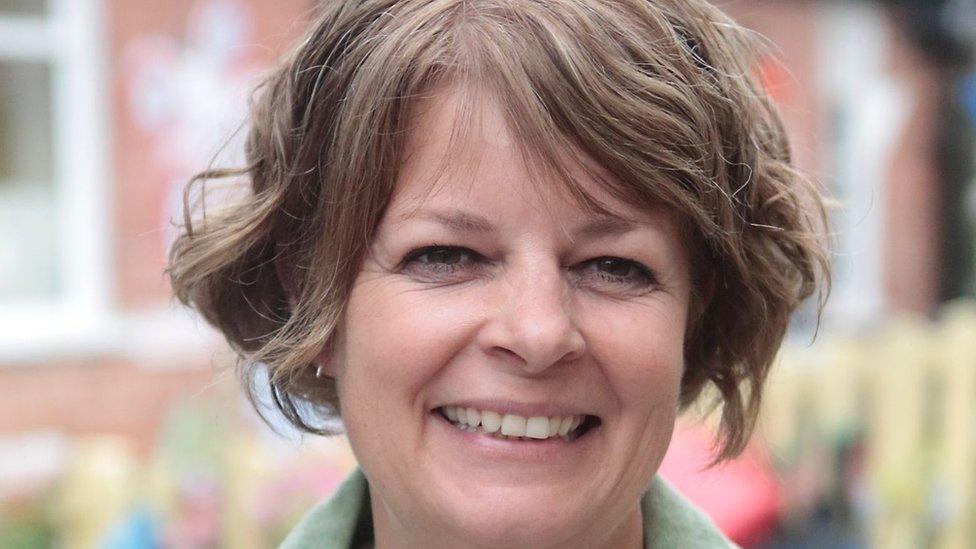Academy school bosses call for Ofsted rethink
- Published

School bosses who run more than 200 academies in England say Ofsted must rethink how it does inspections.
The 12 chief executives said they were concerned pre-Covid standards were being applied to schools still dealing with lost learning and troubled behaviour after lockdowns.
Ofsted, England's schools watchdog, has said it aimed to carry out inspections with sensitivity and professionalism.
It comes after head teacher Ruth Perry took her own life.
Before Ms Perry died, she had been told Caversham Primary School in Reading would be downgraded from outstanding to inadequate.
Her family has said her death was a "direct result of the pressure" caused by the school inspection.
'A shadow of my former self'
Chief executives running 242 academy schools in England have told me inspections are often draining for head teachers.
Head teacher Calvin Henry contacted the BBC after reading about Ms Perry's death, to describe his own "humiliating" Ofsted experience which left him feeling "every essence of your being has been eroded".
Mr Henry's school, St Mary's Church of England Primary in Hornsey, went from good to inadequate and back to good in the space of a few months.
The first inspection, and his appeal against the outcome, left him "a shadow of my former self".
The head teacher, who has 17 years of experience leading successful schools in inner-city London, had his school downgraded after a two-day inspection in March 2022 highlighted concerns that verbal and physical bullying were "commonplace".
Inspectors were told by pupils of racist, homophobic and sexual language in the playground at the inner-city primary school. And as in Ms Perry's school,, external inspectors raised concerns about record-keeping on issues around keeping children safe.
Ofsted has faced criticism in recent years that it has not paid enough attention to safeguarding issues, after concerns about sexualised behaviour in schools.
Mr Henry formally challenged Ofsted's rating, with the backing of school governors and the church diocese.
During those months, he was unable to discuss the outcome of the inspection with his staff.
Despite his efforts, the damning report was published in late September, leaving Mr Henry's career "in ruins".
"Not just that I felt a failure, I felt I had really let my school down," he said.
"I wasn't sleeping, I was always anxious. I had lost my confidence, I had lost my self-esteem."
He said the support of close friends, family and his husband kept him going.
In the latest Ofsted data on parents' views, 94% said they would recommend St Mary's, and 77% said that their children were happy.

Head teacher Calvin Henry says Ofsted's single-word grading system is "brutal and destructive"
One parent, Jess Sondhi, told me the Inadequate judgement in September "sent shockwaves through the school".
But weeks later, in early November, a different team of inspectors gave St Mary's a rating of good overall, and good in every single category. The first, external and second, external reports read as though they are describing two entirely different schools. The second report does say some improvements had been made since the earlier inspection.
BBC analysis of Ofsted inspections since September 2018 shows Mr Henry's experience is rare. Only 16 schools rated good or outstanding were downgraded to inadequate, but then upgraded again within two years.
But chief executives from academies across England - who rarely speak out against the government - have told me off the record that inspections do need to change.
Although none of them are arguing against school inspections, they said the prospect of Ofsted visits keep schools on a "knife-edge", and risk misunderstanding poor communities and the schools that serve them.
Wayne Norrie, chief executive of Greenwood Academy Trust in Nottingham, said the current set of standards being used to judge schools were "not fit for purpose" and "are not matching the reality in schools today".
He told me the cost-of-living crisis and the disruption Covid has had on education have put pressure on schools, and that those in disadvantaged areas are worst-affected.
Inspectors judge a school according to "bullet points", which he said do not take account of these extra pressures.
"Our children have changed, our schools have had to change to adapt [to them], but Ofsted hasn't changed the bullet points."

Caversham Primary School head teacher Ruth Perry took her own life in January
Mr Henry says after "the most humiliating of experiences," he will leave teaching this summer at the age of 54.
He hopes Ofsted's "brutal and destructive" single-word rating system is scrapped.
Ofsted's boss Amanda Spielman has said it was "legitimate" to debate changes to the one-word grades - where a school is given an overall mark of outstanding, good, requires improvement or inadequate.
But she added the system gives parents "a simple and accessible summary of a school's strengths and weaknesses", and is used by the government to identify struggling schools.
"Our aim is to raise standards, so that all children get a great education," said Ms Spielman, who is due to stand down at the end of this year.
But she added it was "unquestionably a difficult time to be a head teacher"., external
Additional reporting by Wesley Stephenson
- Published31 March 2023

- Published24 March 2023

- Published21 March 2023

